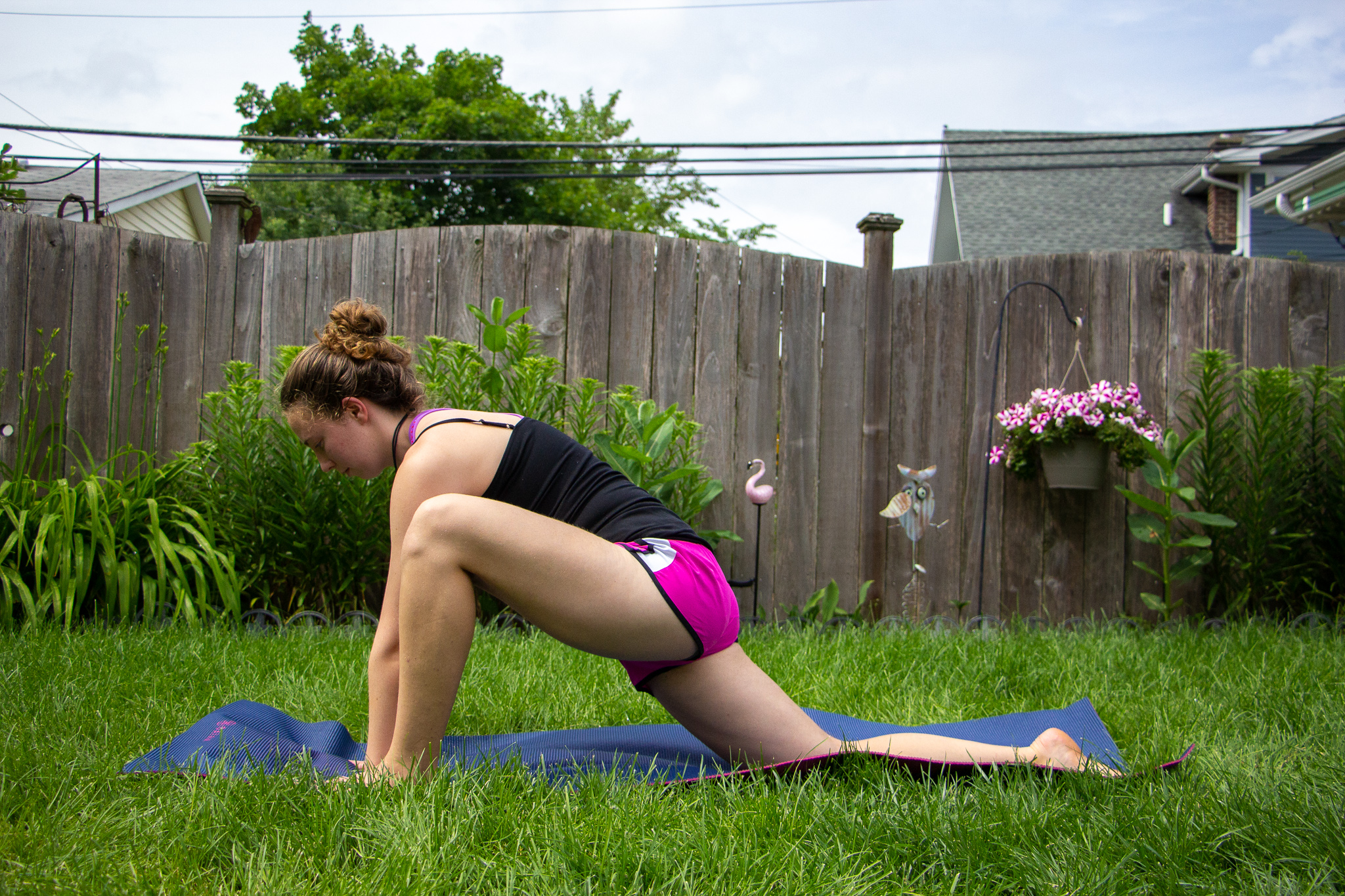This week, we will be hitting our highest mileage to date! For many of you (myself included) 20 miles will be a personal distance record; and as we move into the home-stretch of our marathon training and the long distance runs that come with it, we can begin to really feel what marathon day is going to be like. A first-time marathon will typically take anywhere from 4-6 hours to complete, and the schedule within the race itself is just as important as our training schedule in the weeks before. At this point, we have been training to run at the correct pace as to not burn ourselves out in the first 10 miles, learning to hydrate and re-fuel mid-run and practicing courteous running to keep ourselves and those around us safe.
Recently, I have been thinking a lot about how those 5 hours will go the morning of the race and I have had many questions floating around in my head: What if I get bored? What if I roll my ankle? What if I get too tired and have to walk?

Photo: Claire Harris
The idea of walking during a race has always seemed like a failure to me. I always thought that stopping or walking would mean that I didn’t actually complete the race, therefore making the entire ordeal not worth it. I was always in a literal “finish line” mentality where completing the goal was the most important aspect of the run. Recently, I have been making more of an effort to enjoy all parts of my training and allowing myself to feel accomplished and proud of every milestone, no matter how I reach them. This has included allowing myself to take breaks during runs and, dare I say, walk.
Actively listening to my body has allowed me to slow down, take rest breaks, walk, and run shorter distances than intended on my daily runs. While I expected this to come with a huge sense of failure, I have found that it was quite the opposite. Not only have I been able to avoid injury and dehydration, I have actually ended up running faster and stronger than ever before! Previously, my ego’s quest to run the “perfect” race would force me to overexert myself, resulting in fatigued muscles that would weigh me down and slow my pace. By stopping for a one or two minute break every 5 miles or so, my body has been able to briefly recover while I down some water and a pack of peanut butter or a few dates. The rest, fuel and water help me get through the next 5 miles at a strong and quick pace, actually allowing me to decrease my overall time. Not to mention that I feel strong and healthy at the end of my runs, rather than exhausted and depleted.
I know that many people are absolutely capable of completing marathon and ultra-marathon distances without walking even one step, but I have learned that I am not one of those people (at the moment, at least) and that does not make me any less of a “runner” than I was before. I am enjoying my training for what it is, rather than only focusing on the end goal and having a much more enjoyable experience as a result. Take some time to slow things down and run mindfully this week, if your body is wanting that. Find a comfortable pace, make time to stop and refuel and walk briefly if your body is feeling too tired. Slowing down might be just the thing you need to speed up!
Here is your ninth week of recommended workouts:
Monday: 10 minute warm up, 45 minute easy run, 5 minute cool down
Tuesday: 1 mile warm up, 6 mile race-pace run, 1 mile cool down
Wednesday: 10 minute warm up, 50 minute easy run, 5 minute cool down
Thursday: 10 minute warm up, 70 minute easy run, 5 minute cool down
Friday: Rest
Saturday: 1 mile warm up, 20 miles easy run, 5-10 minute cool down
Sunday: Cross train 30-60 minutes
Keep up with your weekly marathon training and find running tips every Monday on Peaceful Dumpling!
Week 8: Safe Running Tips with your Dog




